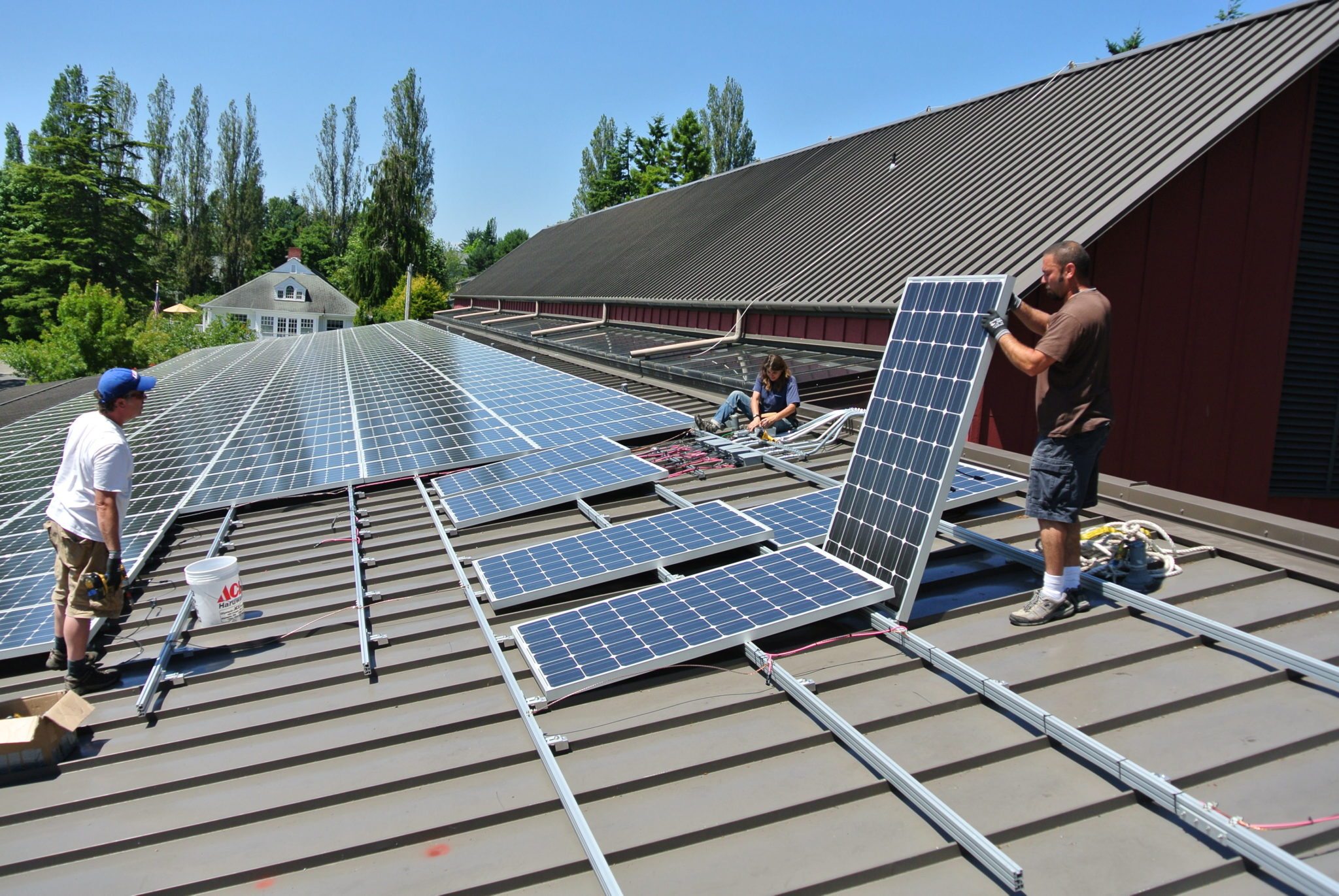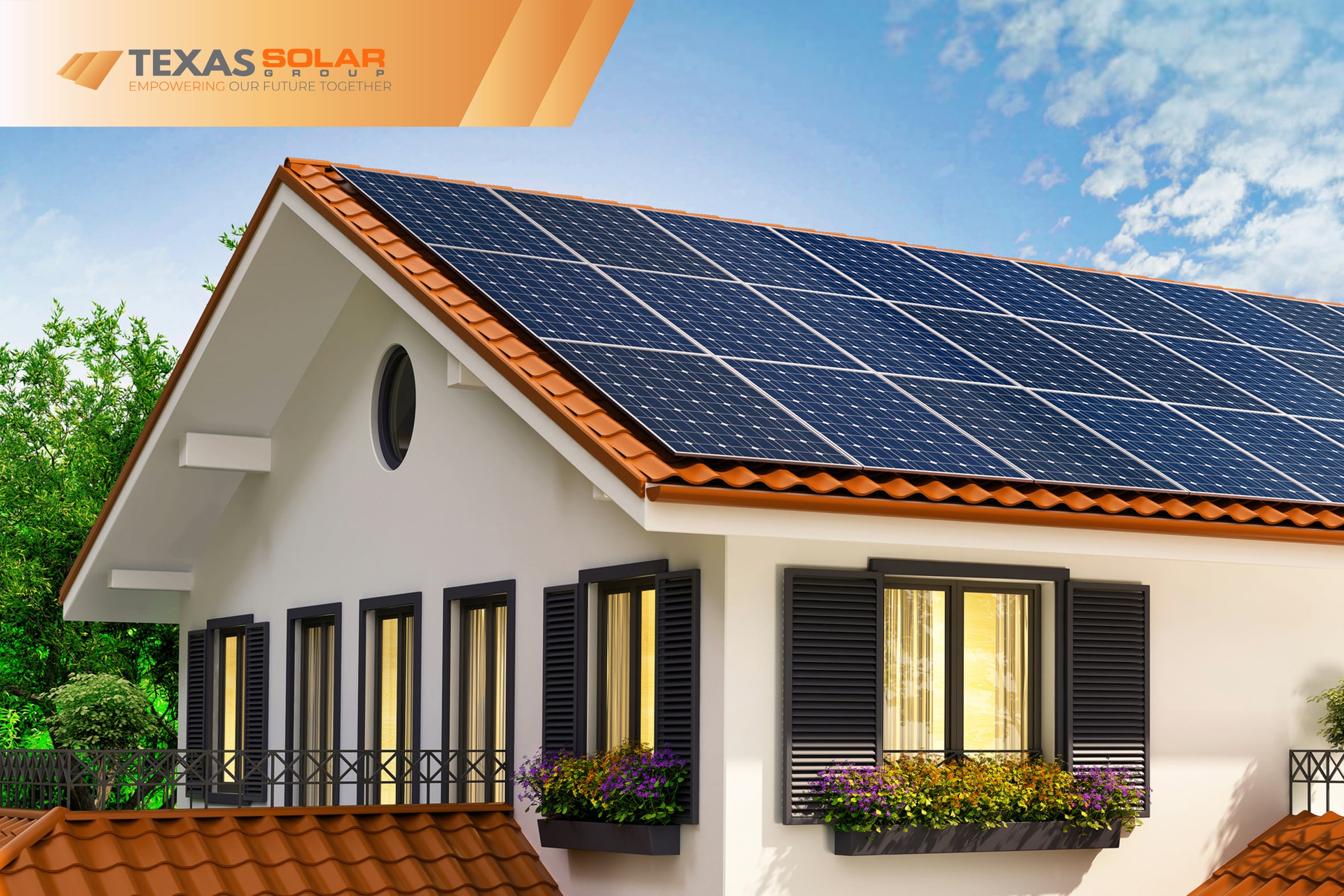Table Of Content
- A Consumer’s Guide to Buying a House with Solar Panels
- Frequently asked questions related to how solar panels work
- How Much Do Solar Panels Save?
- How to Hire a Solar Panel Installer
- Factor in roof repairs or maintenance
- Solar panel efficiency and output
- Best for Battery Backups: DC optimizers with string inverters

We provide a transparent and easy shopping process, and promise you’ll have all the information you need to go solar with confidence. Thanks to plentiful sunshine and great solar incentives, Golden State homeowners are saving thousands by going solar. Clean energy advocates say you can be part of the solution just by showing up. As a group, Gen Z will be on the planet longer than older generations. It only makes sense that we're worried about climate change, and how it might seriously affect our quality of life somewhere down the road -- we fear drought, global temperature changes and rising sea levels.
A Consumer’s Guide to Buying a House with Solar Panels
Solar panel growth is expected to remain strong, thanks to 30% tax incentives for solar and other renewable energy technologies. On the other hand, with interest rates high, financing a solar installation is more expensive. Higher interest rates make leasing solar panels more attractive, though buying outright is likely to save you more money over time. PPAs allow consumers to host solar energy systems owned by solar companies and purchase back the electricity generated.
Frequently asked questions related to how solar panels work
Thin-film solar panels cost between $0.50 and $1.50 per watt, putting them at the lowest end of the price range for solar panels. These solar panels also utilize photovoltaic materials, only most thin-film cells use amorphous silicon, which isn’t crystalline. Thin-film solar panels are cheaper to produce and use readily available materials, making them better for the environment. The best solar panel is the one that best fits your needs and budget, but monocrystalline solar panels are the most common type of solar panel on the market. Nearly all residential solar panels were monocrystalline models, according to a Lawrence Berkeley National Laboratory report. Solar panel efficiency is simply the amount of energy in sunlight that a solar panel turns into electricity.
How Much Do Solar Panels Save?
That fact became immediately apparent when we surfed Maxeon’s and SunPower’s websites to find a way to purchase the product. We saw that many customers from Solarquotes noted Maxeon’s impressive company history and reliability in addition to the solar panels being visually appealing and high-functioning. However, some mentioned being disappointed with the panels’ output as well as the lack of sales support. Maxeon’s solid backing of its products earns it substantial points in our evaluation.

One of the most efficient ways for communities to go solar is through a Solarize program. Solarize programs allow a locally organized group of homeowners and businesses to pool their purchasing power to competitively select an installer and negotiate reduced rates. This bulk purchase enables more people to go solar because the group model makes the process easier, increases demand for solar, and also lowers installation costs. Yes, solar panels still generate electricity on cloudy days, although not as effectively as sunny days. Solar panels can capture both direct and indirect light (light that shines through clouds), but perform at around 10-25% of their normal efficiency when it’s cloudy. The most common residential solar panels contain monocrystalline or polycrystalline (also called multicrystalline) solar cells.
You can roughly calculate your solar payback period with just your solar costs and estimated monthly savings. In evaluating solar panels for this list, we looked at the residential offerings from solar panel manufacturers and judged them as a whole. In general, if one company has a model that stands out in one area, like efficiency, its entire suite of panels will be more efficient. While some Maxeon solar panels will have lower efficiency ratings than offerings from other companies, as a whole they'll be more efficient than others. The table below shows maximum values for the group of residential solar panels, not necessarily a specific model. Canadian Solar ties Maxeon for the most efficient solar panels out there.
Factor in roof repairs or maintenance
Tips to Integrate Photovoltaic Energy on Houses - ArchDaily
Tips to Integrate Photovoltaic Energy on Houses.
Posted: Thu, 25 Apr 2024 08:00:00 GMT [source]
Check online reviews, references and price quotes when selecting a company that can meet your solar energy needs. Look for installer workmanship guarantees in addition to manufacturer warranties. High-performance solar panels can produce efficiency ratings of over 22%, while budget products come in at approximately 16% efficiency. As the maker of the highest-power residential solar panels among reviewed manufacturers, Canadian Solar is more than just another panel maker. One of the company’s many solar panel models can generate up to 705 watts of power. That same panel, the TOPBiHiKu7, also features a high-efficiency rating of 22.7% with a low Pmax rating of just -0.29%.
If you’ve picked the right installer, you should feel confident in what they’re installing on your roof. A solar panel product warranty safeguards against defects that may have arisen during manufacturing. While the average product warranty lasts 12 years, many reputable solar brands now provide extended 25-year product warrantings. For each degree the panel’s surface temperature goes above 25°C, the power output drops by 0.3%. In 5th place is Jinko Solar, one of the biggest solar manufacturers in the world.
In some states, homeowners can lease solar panels or finance them through what is known as a power purchase agreement (PPA). These leases or PPAs mean a third party will own and install the solar panel system on your roof while you pay that party for your energy each month. Some PPAs will lock you in for a set rate, but some have a payment schedule that rises each year. If you also want to hire a solar panel company to clean your solar panels, this will be an additional cost of around $150 per cleaning. For someone with the proper equipment, safety knowledge and experience, this could be a DIY-friendly job that only costs a one-time payment of around $100. A roof with a higher pitch can be more challenging—and therefore more expensive—to install solar panels on.
If you’re installing a battery with your solar system, consider DC optimizers. Each solar panel gets its own optimizer, with panel-level performance benefits and diagnostic tools similar to a microinverter’s, but the network still connects to a string inverter. Plus, the system can monitor individual panel performance to identify problems. Microinverters, such as those from Enphase, typically add about $1,000 to the cost of the solar system, but the warranty on microinverters should match the full 25-year term of the solar roof warranty. The biggest difference between solar proposals is often the inverter technology.
Some panels are better suited for small spaces, while others excel in hot temperatures. It's important to choose the solar panels that work best for your home, considering your roof and climate. For every degree above 25° C (or 77° F), your solar panel's electricity production will decrease by the temperature coefficient. For example, if your panel's temperature coefficient is 0.35%/°C, for every one-degree temperature increase above 25°C (77°F), its electricity production will decrease by 0.35%. If its temperature rises to 35°C (95°F), its electricity production will drop by 3.5%.
Solar customers looking for one-stop shopping through their installer can appreciate the wide range of available Panasonic products. If the home seller bought the system outright or under a loan, the ownership should convey with the property. A third-party owned system may require additional steps to assume ownership or to transfer the contract. Find out when the system was installed and how old it is in relation to the age of the roof. You should consider whether the roof may need repair before the solar system expires. Consumers have different financial options to select from when deciding to go solar.

No comments:
Post a Comment